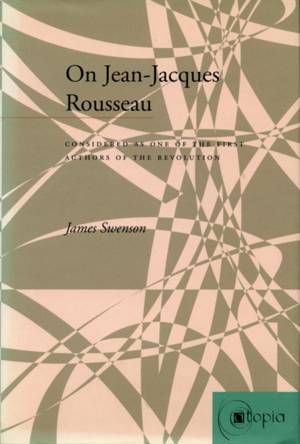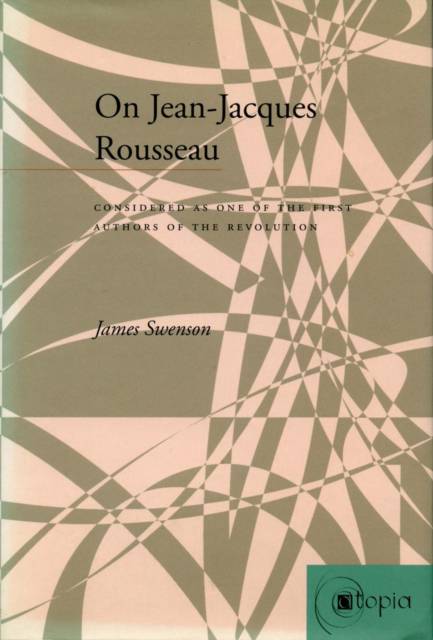
- Afhalen na 1 uur in een winkel met voorraad
- Gratis thuislevering in België
- Ruim aanbod met 7 miljoen producten
- Afhalen na 1 uur in een winkel met voorraad
- Gratis thuislevering in België
- Ruim aanbod met 7 miljoen producten
Omschrijving
In order to grasp what it means to call Rousseau an "author" of the Revolution, as so many revolutionaries did, it is necessary to take full measure of the difficulties of literary interpretation to which Rousseau's work gives rise, particularly around such a charged term as "author."
On Jean-Jacques Rousseau shows that Rousseau's texts consistently generate a division in their own reading, a division both designated and masked by the fiction of authorship. These divisions can occur successively--as in the narrative reversals and discontinuities characteristic of Rousseau's fictional and autobiographical works--or simultaneously, in the form of incompatible attempts to apply the lessons of a single text to an urgent historical moment. Given the structure of these texts, their "influence" can only occur in an equally paradoxical form. Rousseau's contribution to revolutionary thinking lies in his conceptualization of the constitutive function of misunderstanding and narrative discontinuity, in history and political action as well as in literature.
Such misunderstandings and discontinuities are particularly well illustrated by the vicissitudes of the reading of Rousseau's texts during the revolutionary period, a moment when "readings" occurred as political programs. The Revolution enacted Rousseau precisely to the extent that revolutionaries could not agree on what action he called for. He is "one of the first authors of the Revolution" not because he was one of its causes, but because he provided the terms in which the logic of the revolutionary process becomes intelligible.
Specificaties
Betrokkenen
- Auteur(s):
- Uitgeverij:
Inhoud
- Aantal bladzijden:
- 344
- Taal:
- Engels
- Reeks:
Eigenschappen
- Productcode (EAN):
- 9780804738644
- Verschijningsdatum:
- 1/03/2000
- Uitvoering:
- Paperback
- Formaat:
- Trade paperback (VS)
- Afmetingen:
- 153 mm x 228 mm
- Gewicht:
- 453 g

Alleen bij Standaard Boekhandel
Beoordelingen
We publiceren alleen reviews die voldoen aan de voorwaarden voor reviews. Bekijk onze voorwaarden voor reviews.












